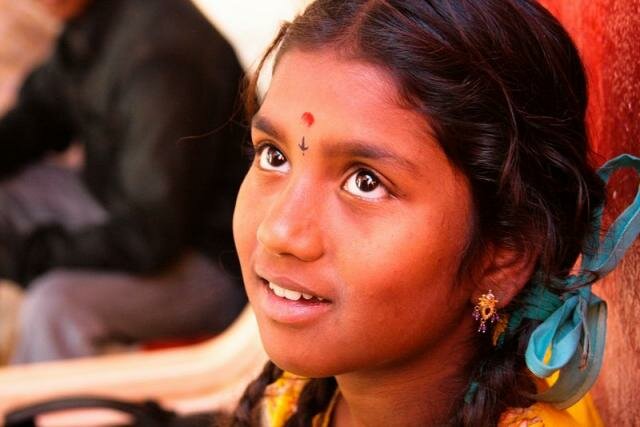BROWSE COUNTRIES/ TERRITORIES
Julia Gabriel
As another school year begins, more kids will be starting with the hugely popular Julia Gabriel Centre of Learning.
In 15 years you have moved from a single classroom to a huge organisation. What will happen in the next 15 years?
We’ll open new centres in other countries, with husband and wife teams, like David and I, as joint venture partners. We’re now in New Delhi, Kuala Lumpur, Jakarta and Shanghai, where our partners are in education for the right reasons: education of their own children, wider family and community.Do you enjoy running a small class and have personal involvement with all your students more than running a show with literally a cast of thousands?
I don’t run the whole show any more! Yes, I still enjoy personal involvement with all my students, in small classes, where my time is focused now on teacher training, development and mentorship in our centres. Since I moved Julia Gabriel Centre out of home, David has run the business side of the organisation. I stick to what I love and do best: teaching.
What is the biggest difference between teaching children in the East and the West?
Happily, children are children all over the world. Each is unique and different from each other in their own way, yet in need of the same attention, affection, acknowledgement and appreciation. The only difference is in individual personalities.
Tell us about the best and worst kids that you have taught.
Not possible because there’s no such thing as best or worst, only individual children each needing a healthy, nurturing environment to become the best they can be. There’s certainly no such thing as a “naughty” child, if that’s what you’re asking, though children may seek attention negatively because they’re desperate for someone to ask, “Why are they behaving this way? What’s going on?”
You are English but your home is Singapore. Do you feel you are as Singaporean as the Asians?
Yes, definitely. This is home. I’m comfortable here because Singapore is made up of so many of us who don’t fit a particular mould. I can be “me” here. I might look English but, after 35 years in Singapore, my values are really more Asian than Western.
As a long time resident in Singapore, no doubt you enjoy Asian food. What are you favourite dishes?
All the forbidden ones! Char kway teow, nasi lemak, fish head curry, prata, paper thosai with teh halia, and David’s mum’s crab curry.
Why is Singapore lagging further behind in performance art than other countries? Are the people here too logical to be artistic?
Why is a ripe banana tastier than a young one? I think Singapore has much to be proud of especially as we are open to embrace diversity, allowing individual voices to emerge, totter, find their feet and mature. The “lag” is merely a time lag.
When you come across shy students, what do you do to bring them out of their shells?
The same as the above: Give them time to ripen, without pressure or force feeding, until they feel safe. I teach through drama, a medium that lets students join in at a comfortable level, take on a role, and discover what they can do. Magic! In time they realise they’ve been rehearsing for life, finding confidence to take part without a costume or mask, to express themselves. The hardest role to play is yourself.
Your children are born and raised in Singapore. Do they feel anything about their English heritage?
That’s interesting because my son, Mark, was born in Singapore, has a Singapore passport, did national service, went to the University of London to discover his English roots, then came back, married a Singaporean and loves all things Asian. My daughter, Emma, born in England, with a British passport and permanent residence in Singapore, studied here, went to university in Australia and sees herself staying on there. So I have an Asian son and a Western daughter, tied to the country they were born in. Is that coincidence?
Many children today prefer to watch TV rather than read books or act. How do you feel about it? Is it healthy?
Ideally parents will reduce TV watching and substitute this with conversation because children don’t learn language from TV. They need to engage with words and ideas in conversation, books or dramatic play. Children who miss out on the magic of books in early childhood, find them dull and a lot of hard work compared to plonking down in front of the TV.
https://www.juliagabriel.com
First Published:
December 2006
You are not logged in:
Login or Register
Login or Register
Topics
- Asian Dynasties and History
- Conservation of the Environment
- Definition: Culture
- Economy and Economics
- Food and Recipe
- Geopolitics and Strategic Relations
- Health and Body
- Of Government and Politics
- Religion and Practices
- Social Injustices and Poverty Report
- Society, Class and Division
- Unrest, Conflicts and Wars

Email Marketing By Benchmark Email
Friends or Foes Environment and Sustainability US military strategy Faith of our Fathers Special US Campaign in Afghanistan Country profiles iPhone Business updates Asia's First Wives Barack Obama Women Disney in Asia Tycoons Literature 50 Million Missing ONE













 Another Point
Another Point An imaginary factual blog of General David Petraeus, Commander, United States Central Command
An imaginary factual blog of General David Petraeus, Commander, United States Central Command